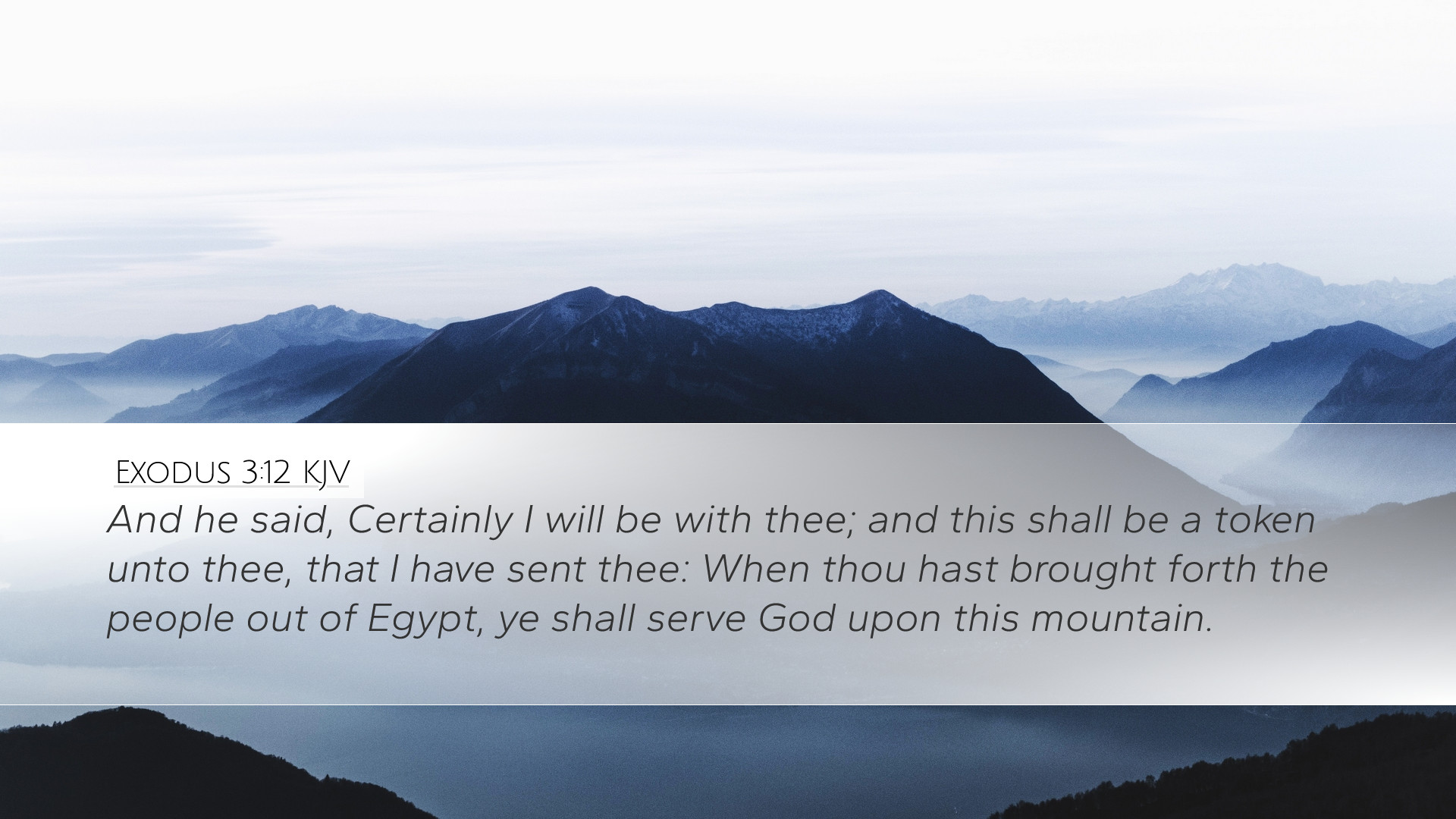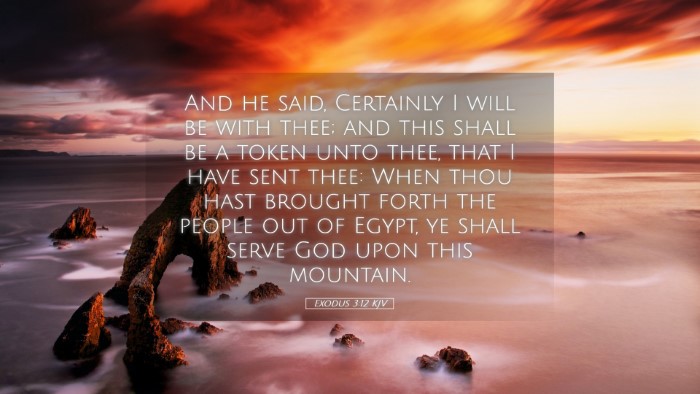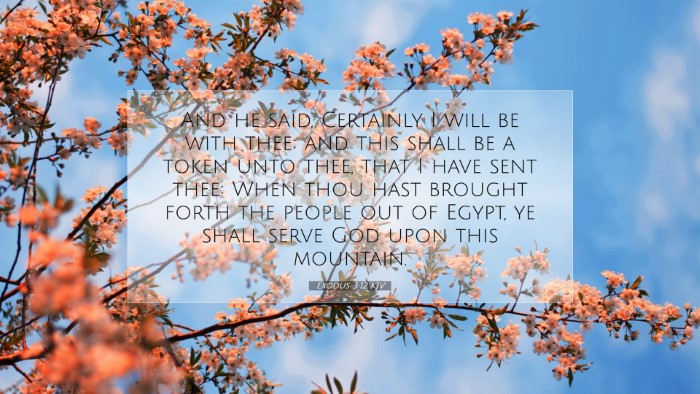Commentary on Exodus 3:12
Text of Exodus 3:12 (ESV): "He said, 'But I will be with you, and this shall be the sign for you that I have sent you: When you have brought the people out of Egypt, you shall serve God on this mountain.'"
Introduction
This verse is a pivotal moment in the narrative of Exodus, encapsulating the divine call and commissioning of Moses. The emphasis on God's presence and the sign given to Moses highlights themes of assurance, guidance, and divine purpose. Understanding this verse requires delving into the historical context, theological implications, and the pastoral relevance of God's promise.
Contextual Analysis
Understanding Exodus 3:12 begins with situating it within the larger framework of the Exodus narrative. Moses, having fled Egypt, encounters God at the burning bush. This encounter signifies a transformational moment not only for Moses but for the entire nation of Israel, as they are called to liberation from slavery.
As Matthew Henry notes, this event marks the initiation of God's plan for His people, confirming that God hears their cries and is committed to their deliverance. This promise comes not only with a command but also with assurance of divine presence.
Divine Assurance
God's Presence: The phrase "I will be with you" is central to this verse. God reassures Moses that he will not face the monumental task of leading the Israelites alone. Albert Barnes emphasizes that this presence is not merely a passive assurance; it implies active involvement and support in Moses’ mission. This promise of companionship is echoed throughout Scripture, serving as a reminder that God’s presence is the source of courage and strength for believers.
The Sign: The indication that Moses will see a sign once the people are delivered (i.e., worshiping God on this mountain) is significant. Adam Clarke expounds that this serves as a tangible reminder of the promise and a confirmation of God's faithfulness. It reflects the necessity of faith and obedience in God's plan, as Moses would need to trust in God's promise before witnessing its fulfillment.
Theological Implications
The theological significance of Exodus 3:12 extends beyond the immediate narrative. It highlights several key aspects of God's nature and His relationship with humanity:
- God of Covenant: God’s promise is rooted in His covenant relationship with Israel. This reinforces His role as a faithful God who remembers His people.
- Grace in Commissioning: Despite Moses' insecurities and doubts, God's choice of him reflects divine grace. Clarke points out that God calls imperfect individuals to fulfill His perfect will, underscoring the theme of grace in the process of calling.
- God's Purpose:**: The eventual worship on the mountain symbolizes the ultimate purpose of liberation — to serve and glorify God. Henry notes that worship is the rightful response to God’s deliverance, indicating that true freedom is found in service to God.
Pastoral Relevance
For pastors and church leaders, this verse provides profound insights into empowering others for ministry. Just as Moses was reassured of God's presence, church leaders can encourage congregants that they too are not alone in their endeavors:
- Encouragement in Calling: Exodus 3:12 serves as an encouragement to those who feel inadequately equipped for their calling. Just as God equipped Moses with His presence, He equips believers today through the Holy Spirit.
- Reminders of Worship: The focus on worship after deliverance reminds believers that our lives should culminate in glorifying God. Applying this in teaching can shift the focus from merely seeking deliverance to recognizing the purpose behind it.
- Trusting God’s Promises: The assurance of God's presence encourages trust in God's promises. In pastoral care, integrating the truths of God's faithfulness can lead to transformative faith among the congregation.
Conclusion
Exodus 3:12 encapsulates a critical moment of divine interaction, emphasizing God's enduring promise of presence and the call to worship that follows deliverance. Insights from Matthew Henry, Albert Barnes, and Adam Clarke collectively reveal that this verse speaks to the heart of Christian faith: that God is intimately involved in our lives and equips us for the tasks ahead. For theologians, students, and scholars, it serves as a foundational text to explore themes of divine presence, promise, and purpose in the larger narrative of Scripture.


